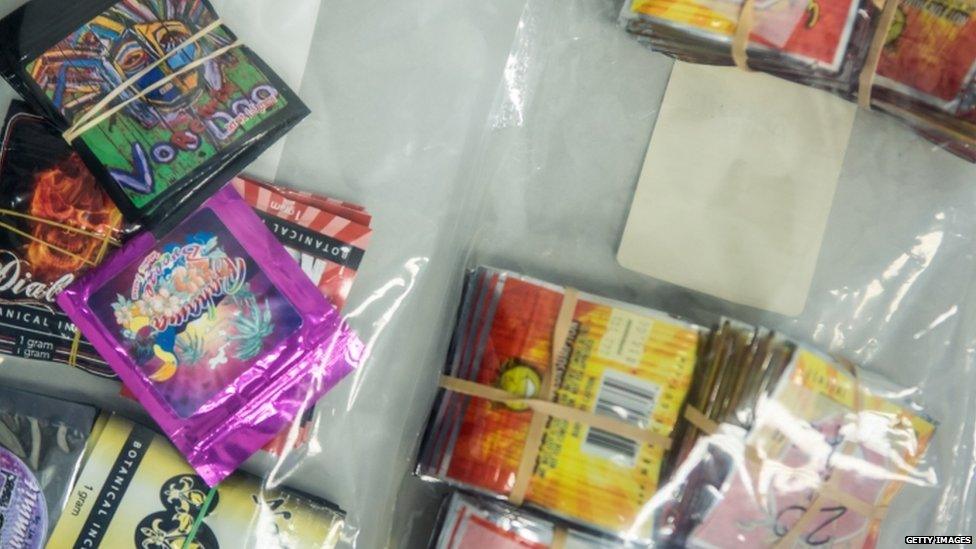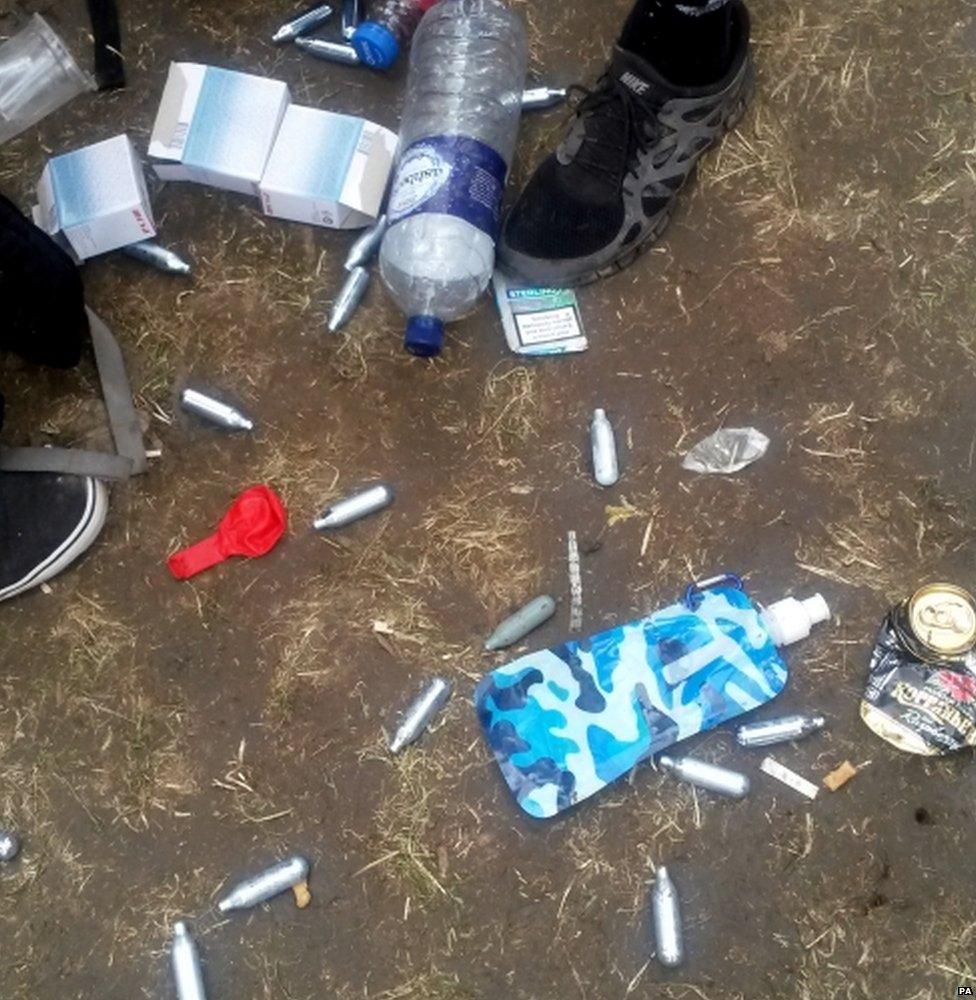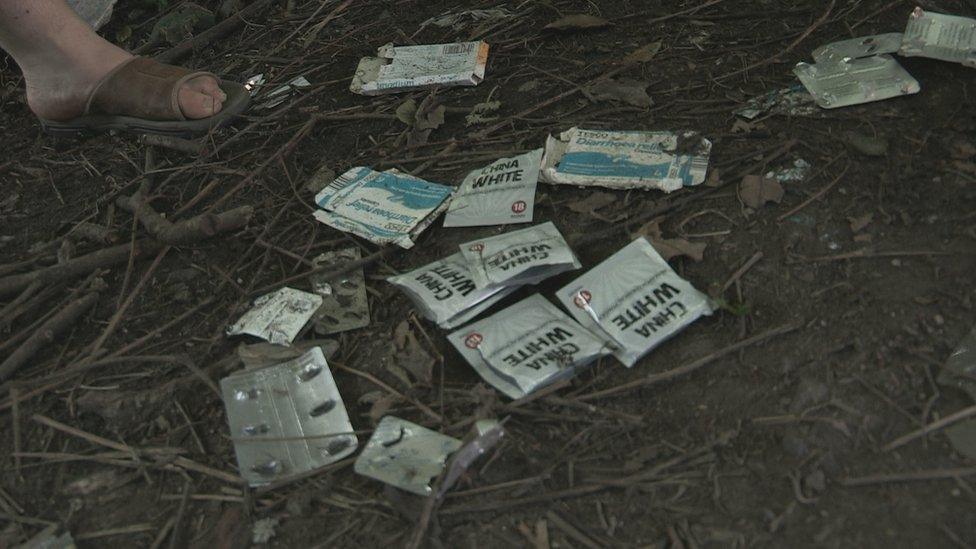Psychoactive substances bill: Two new legal highs banned
- Published

Some legal highs look like this
Did you buy legal highs at the weekend? They may not have been as legal as you thought.
On Friday, two new drugs , externalwere banned by the government for 12 months.
It is now illegal to make, supply or import 4-Methylmethylphenidate and Ethylnaphthidate. The compound 4-Methylmethylphenidate is also known between buyers and dealers as 4-MeTMP .
It is a stimulant related to Methylphenidate, which is commonly sold under the brand name Ritalin.
Ritalin is used in the treatment of Attention Deficit Hyperactivity Disorder (ADHD) and Narcolepsy.

The government plans to ban all legal highs
The other drug, Ethylnaphthidate, is also known as HDEP-28.
But it is chemically related to Ethylphenidate or Benzo Fury.
While possessing the drugs is not illegal, anyone caught making, supplying or importing these drugs can face up to 14 years in prison as well as an unlimited fine.
Police are also allowed to search or detain anyone they suspect of having the drugs and seize, keep or dispose of a substance they think is a temporary class drug.
The banning orders are temporary while an independent drugs council decides whether the prohibition should be made permanent.
Five drugs, including Benzo Fury, were also banned for twelve months in April.
They are sometimes known as Gogaine, Nopaine, Burst and Banshee Dust.
Their full chemical names are 3, 4-Dichloromethylphenidate ('3,4-DCMP'), Methylnaphthidate, Isopropylphenidate and Propylphenidate.
These measures are part of the government's crackdown on so-called legal highs.

The psychoactive substances bill mentioned in the Queen's Speech plans to ban all mind-altering drugs unless specifically mentioned (for example alcohol, caffeine or nicotine).
The bill is controversial and some drugs charities have said what's needed is more education, not just a ban that will drive drug users underground.
However, the Minister for Policing, Crime, Criminal Justice and Victims Mike Penning said they are "determined to protect young people from the dangers of so-called legal highs and target those who profit from their trade".
"The blanket ban will give law enforcement agencies and local authorities greater powers to tackle the reckless trade, instead of having to take a substance-by-substance approach."
Follow @BBCNewsbeat, external on Twitter, BBCNewsbeat, external on Instagram, Radio1Newsbeat, external on YouTube and you can now follow BBC_Newsbeat on Snapchat